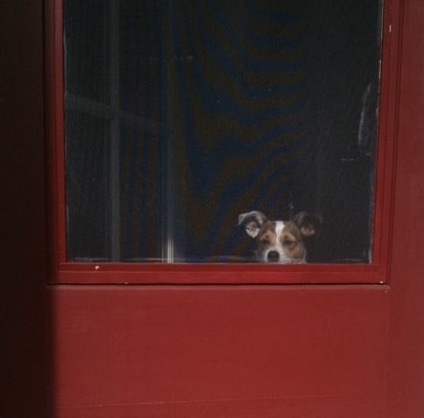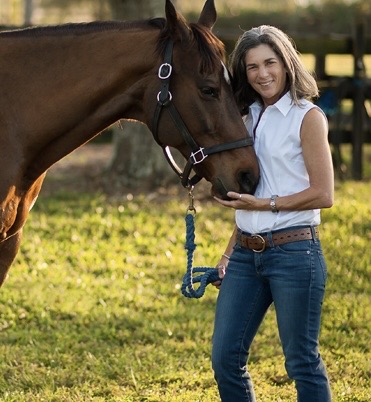News, ideas & inspiration from industry leaders

Let’s Get Rid of “Them”
Dr. Weiss encourages us to pull back from assumptions about the folks who come through our doors. They just might be us.

In my years and years (damn it…and years) of working in the sheltering field – teaching workshops, writing blogs, doing research, consulting – there has been one constant. Shelter staff tend to put on a cloak of protection by putting potential adopters, relinquishers, individuals who have lost their pets, and those who like to come to the shelter just to browse, in a different camp than themselves. Us Vs. Them. “They don’t know what they want…like we do.” “They don’t have the knowledge…like we do.” “They don’t care like us…”
Problem is, these categories of “Us” and “Them” can lead to subconscious discrimination—and biased decision-making. And no room for respect, listening, understanding or compassion.
I get it – sometimes potential adopters come in with some wild ideas, sometimes those who’ve lost their pets appear to not want to pay the fees to reclaim, and sometimes relinquishers appear to not care at all. And with only so many hours in a day, those coming to browse can take up precious time and resources.
I have been a Them. I was a young college student desperately wanting a dog whom the shelter would not allow me to have. Until, that is, I lied my way through their adoption process and ended up with my heart dog, Benny, who lived his life with me, inspired years of sheltering programming and myth busting. I often think about all that would have been different in my life had I not been a tenacious PIA, and how Benny, a 3-year-old just-neutered chow mix with behavior issues, would have likely never left that very crowded shelter back in the late ‘80s when fewer left alive than were euthanized.
And then I was Them again years later, when I had to rehome a pet. It was heartbreaking. I am fortunate I had the resources to be able to find a great home for him, where he had a great and full life.
I suspect I am not alone. Maybe you have been a Them too at some point in your life…
Here is the thing, as soon as we separate ourselves and move into Us Vs. Them thinking, we open the door to not seeing Them with the same set of human emotions, ability to learn, and desire to help as we see in ourselves. We begin to demonize, dehumanize and, instead of letting someone prove that they are out to do harm, we make them prove they are not. This thinking results in holding animals in your shelter longer than they should be there. This turns people who want to help away from your organization. This leaves people without the opportunity to become a more humane pet owner. This is causing suffering of pets within your community, and the suffering of the people to whom they are connected.
I know that making a shift away from Us Vs. Them can be really hard, but it will save lives. Here are a few shifts in process to consider. (If you are already doing these things, please let us know so we can celebrate and connect you with those interested in shifting). We can dig into each of these a bit more in future blogs.
Potential Adopters
Start with a smile, a thank you, and a YES… Yes – together, we can find you a match. How many “No” and “Must” statements are on your adoption website or on individual cage cards? No other pets, Must have fence, No kids under x age. That last one we will revisit as I am sure that many of the pets with that designation are great with kids – especially the kids coming to the shelter who love animals just as much as we do. You will learn so much more about the person, their desires, intentions, and a whole lot more by being on their team. You will make better matches, increase adoptions and be better able to support them post-adoption.
Relinquishers
Allow relinquishment. Yes, there are many relinquishers who simply need a helping hand to keep their pet or rehome on their own, and we absolutely should offer them a helping hand. And then there are the relinquishers who do not have the option to keep their pet, even with help. These folks may not always appear heartbroken – but it is important to note that most of them have been on a long journey of emotional decision-making that led them to your door that day. When they get to your door, they have swallowed their heart to do the right thing for their pet.
Start with empathy and an understanding of the pain they are going through. Diversion programs can be helpful for many, yet they could also be harmful in some situations. There is a ton more we need to learn about what happens when folks are turned away. However, when we send people away without a careful process that focuses on the basic tenet of supporting the welfare of the dog or cat, providing (or guiding them to) the resources for them to retain, and when we don’t respect the person who cared enough to come to you with their pet, we are causing harm. Period.
RTO
If you have mandatory RTO fees, remove them. Minimally for first-time offenders. A fee that may seem small to you could be the difference between feeding a family or bringing their pet home. A heartbreaking decision any way you cut it. That pet belongs home, and he is costing you more by staying in your system than the reclaim fee.
The “Just Looking”
Someone who is just looking is just a connection away from an adoption. Almost every pet who has become part of my home (or barn) has been an impulse. And I bet that may be the same for you as well. And yes, there is data pointing to a strong bond and high retention for impulses. Welcome that “just looker” and learn a bit about what type of pets they tend to like and go find one for them to touch. This is where the magic happens, my friends!
Simply, I am suggesting we pull back from our assumptions, notions and identities enough to view the person walking into our shelter as someone who is enough like us that it could be us.
It could, you know.
Which of the above groups of “thems” are most difficult to recognize as “us” in your organization? What do you need to make the shift?



Years ago, I attended a Petfinder Adoption seminar and Laura Lanza was one of the speakers. She conducted a test. First, we listed all of the qualities we looked for in a pet owner. Then we listed all of the qualities that would rule out pet ownership. About 20 on each list. The quiz came when we all had to stand up if we ever did any of the things on our never adopt list. I was up in now time. At the end of 116 attendees, 3 were sitting.
We were all guilty of the things we rejected potential adopters for, so I get exactly what you are saying and agree completely. The ones I have no patience for are those who break our contract, toss our cat out on the street, despite our being willing to take back the cat, or they declawed it or never took it to the vet.
I do get exasperated by the folks in the rescue industry who trash the shelter, judge folks in difficult situations and think they are holier than thou. Usually, they’re the ones who are hoarding because no one is better than them. Blech.
Candy –
Thank you so much for your thoughts! You raise good points. Yes – that quiz is a great way to start to understand how we are really them. I hope you will be open to a response to your comment about adopters you lose patience with. The behaviors you describe in the adopters you do not have patience for seem like behaviors that tend to occur when there is an Us Vs. Them dynamic going on. Contracts usually break because the adopter fears bringing the animal back to the shelter, cats can get declawed when there is not a safe, respectful, open dialogue both before and after the adoption to help resolve issues related to declawing. Folks not bringing their adopted pet to the vet may simply need options for lower cost vet care. Yes – there are certainly a few people who do mean harm, but most do not – and their opinion of us is made quickly – which can mean the difference between open ears and closed.
Thank you for capturing this critically needed shift so eloquently. Having advocated for common sense guidelines instead of rules, and less restrictive adoption criteria for years (and years+), it is great to see this becoming a mainstream topic! As a young adult, I was refused the opportunity to adopt a dog due to inflexible rules, and it stayed with me ever since. Well done!!
Thank you Debra for advocating! Together we got this!!
I have had many different animals all my life. Many of them never saw a Vet unless they were sick or injured. It wasn’t until I was nearly 40 that I even saw the purpose of preventative care, or spay / neuter. I just recently learned about chipping an animal. I have been fortunate to have not lost an animal due to my own ignorance in that regard. I now know better and do my best to get this done. I volunteer for the Humane Society by fostering primarily puppies or moms and puppies, although I have 2 long term fosters that will likely be with me to the end. I have surrendered two dogs, although they were not actually mine. They belonged to my ex husband, who was living in my house at the time. He died in my home while I was caring for my mother who just got out of the hospital. I went home to do a wellness check, as he didn’t show up to work. I found him dead. At his time in my life I was unable to physically or emotionally deal with his dogs. Animal control came and picked them up. I still feel bad for doing that, but they needed care that I couldn’t provide. I love animals, I have 4 dogs of my own, I have buried 5 that lived out their lives with me. Life comes with circumstances that we do not choose. Empathy is a must, you never know what people are going through. I would like to see more public education on preventative Veterinary care, there really is not a lot out there. It is often ignorance or lack of funds that keeps animals from getting proper care.
Oh Sabrina – thank you so much for sharing your experiences – and thank you for all you are doing for animals.